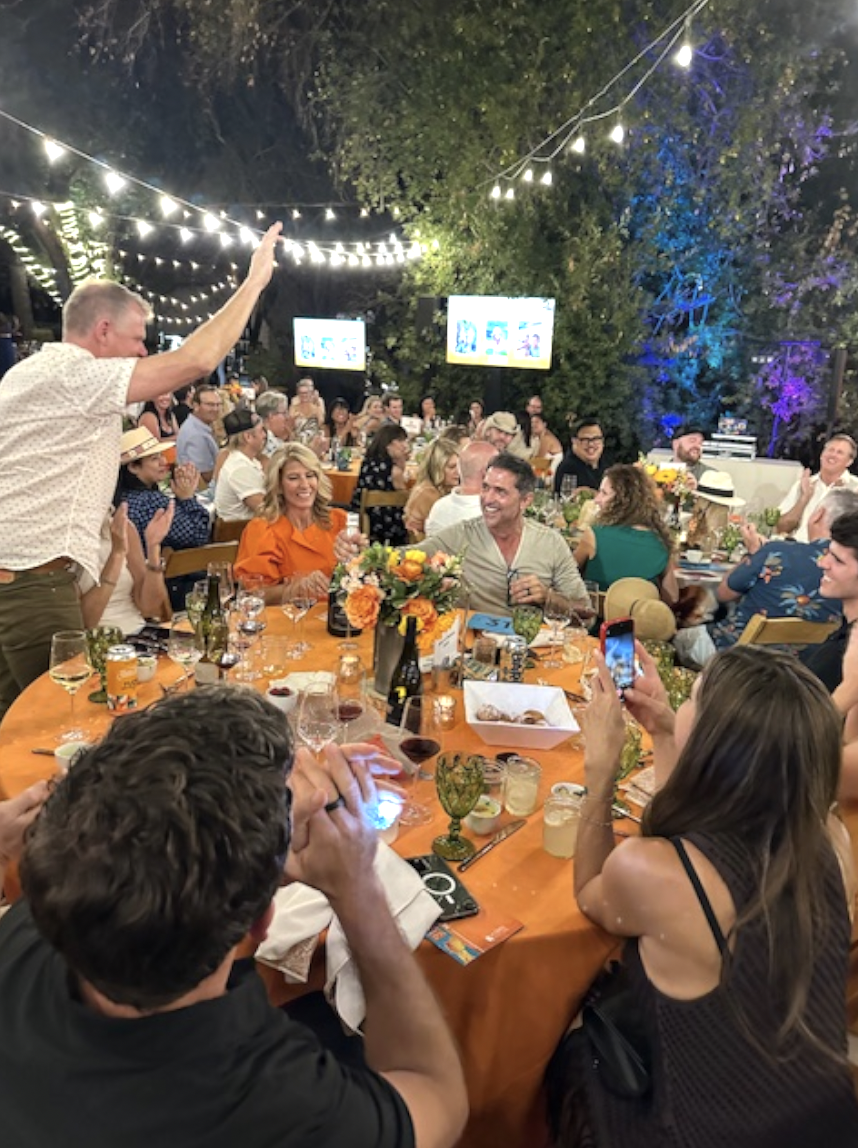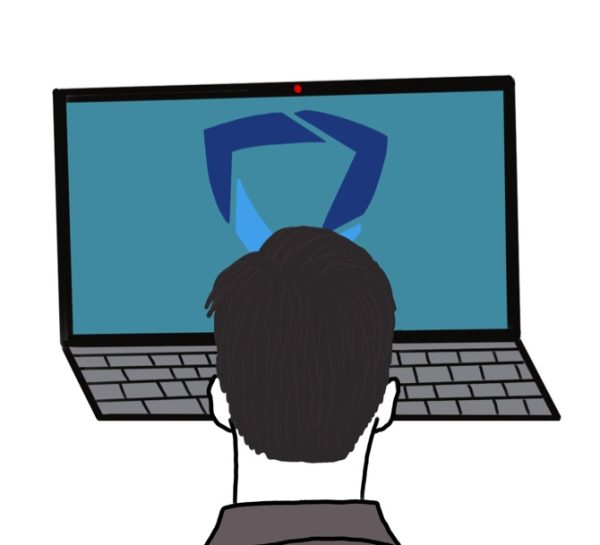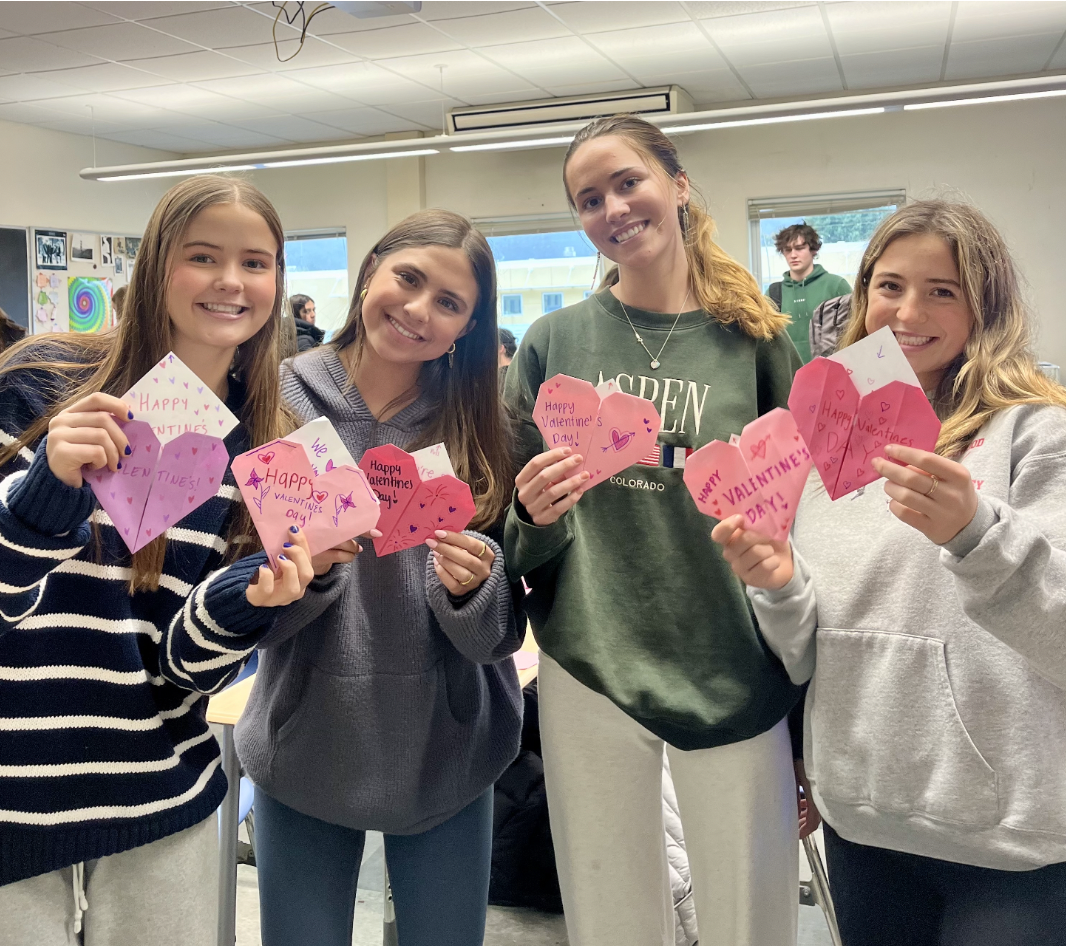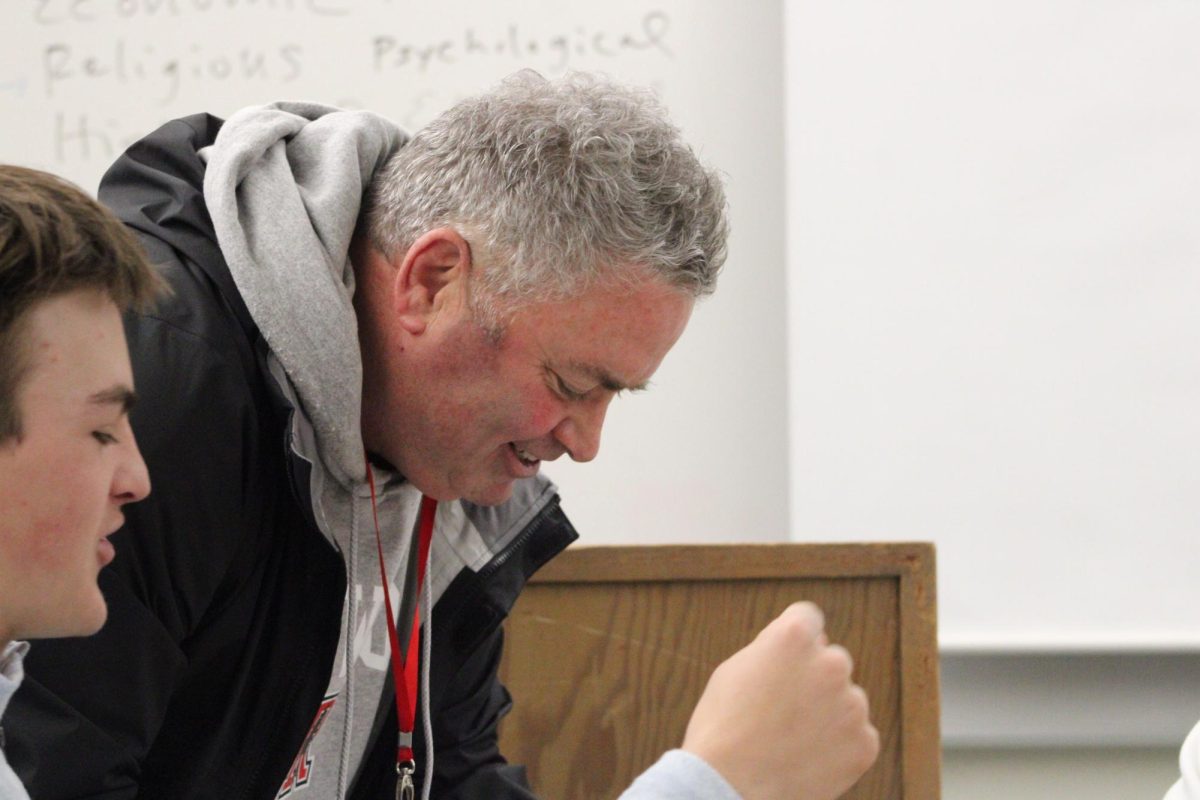Every day, students walk past these classrooms with a vague idea, or no idea at all, of who the people inside are. Some are a part of the Redwood staff, and others are a part of the student body. Room 175 and 301, the special education classrooms, have two main teachers who accommodate many students with moderate to severe disabilities.
Kim Cochrane works for the Marin County Office of Education and teaches at Redwood where she has been for the past 24 years. From teaching at Redwood, she has formed a tight bond with the community and the student body.

Kim Cochrane works with students needing extra attention for severe disabilities
“I’ve always felt like a part of this school, but we got better at figuring out what we were doing as a class and where our kids best fit,” Cochrane said. “[Redwood] just allowed us to do more and expand my program. This whole garden area and the Friendship Club, we had already had it, but it’s bigger and better because of the willingness of everybody here letting us do it.”
During her second year at Redwood, she formed the Friendship Club as a way to integrate her students with the rest of the school with games and spending time together and has been the advisor ever since.
“I wanted to see how we could bring more of the regular community together with my kids. The next thing I knew, I had way too many—30 people in the club. We [made] a garden and did plays in the Little Theater [and] fundraising…and it got kids comfortable with a group of kids who have medical issues,” Cochrane said.
Senior Nick Janowsky has been volunteering for the special education teachers for two years which encouraged him to become involved in the Special Olympics.
“I liked the idea of being able to help people every single day when I come to school, and it’s a cool way to give back while also being at school. It is a good use of my time when I’m here,” Janowsky said.
A more well-known aspect of the special education program is the classes for students with less severe disabilities. Beth De Carion, special education teacher and site coordinator for Redwood, educates students with moderate learning disabilities. She teaches Academic Workshop, which is a major source of support while attending regular classes.
“Academic Workshop is where we work on specific things specific to each given year, so the way I work with student A is very different than student B. It all depends on their specific plan, and it’s a small enough class that we can do that,” De Carion said. “About 10 to 11 percent of the school population has an individualized education program (IEP). If you have an IEP, you qualify for services to support your learning.”

The friendship garden is something the Friendship Club has spent a lot of time doing together
De Carion has been a teacher at Redwood for six years, but previously taught at a school in San Francisco, serving a larger school district. After experiencing both school sizes, she found several differences between the two.
“I taught inclusion special education so I actually had kids [who were] more in the moderate range of learning disabilities, and I supported them in General [Education] classes, but I had to actually modify the curriculum and change it completely. If my kids are non-readers, I did completely pictorial versions of whatever book they’re reading in English. I did a lot of co-teaching,” De Carion said. “Here, it’s a little more traditional and I work with the students in academic workshop, and then I communicate with their teachers on their behalf.”
With the close-knit environment that academic workshop provides, De Carion feels she can provide more individualized ways to help her students succeed. Along with that, she has grown to believe Redwood has an inclusive atmosphere surrounding special education.
“I feel like Redwood has a pretty good and inclusive view of students with an IEP. I don’t think people see them as different,” De Carion said.
Cochrane also feels that the other students who take an interest in these programs provide inclusivity.
“It’s my job as an educator to teach, but I watch these amazing young boys and girls go into my class and honestly and genuinely form a relationship with my kids. In special [education], we’re more accommodating. We’re more open to people. I think that’s what [it’s] about,” Cochrane said.









!["I knew I wanted to be a writer. I wasn't a good student [at Redwood], but I wanted to be a writer, and I wanted to paint. I'm self-taught in all of it, which gave me an original voice," Paige Peterson said. (Photo courtesy of Paige Peterson’s website).](https://redwoodbark.org/wp-content/uploads/2025/02/ppeterson.png)




